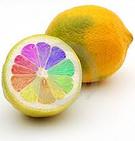GMO 101: What is a GMO?

A GMO (Genetically Modified Organism) is a plant or animal that has been genetically (GE) engineered by adding foreign genes; scientists then alter the plant’s or animal’s genes with DNA from different species of living organisms, bacteria, or viruses to get desired traits.
Access to healthy foods and a safe, appropriate diet is not as easy as it once was.
Did you know that...
1) Today’s fruits, vegetables, meats, and diary are loaded with chemicals, pesticides, hormones, antibiotics and some are considered GMO (Genetically Modified Organism)
2) GMOs are present in 60 to 70 percent of foods in the United States, mostly in processed foods. If you eat processed foods, you are eating GMOs.
3) The one exception is fresh fruits and vegetables.
4) Hawaiian papaya, some zucchini and squash, canola, some sweet corn, soy protein, sugar beets, and cornstarch are GMOs. There are non-GMO versions of soy and many food suppliers, such as Silk only use Non-GMO products. To learn more, CLICK HERE
5) No meat, fish, or poultry at this point are GMOs; however, they are fed GMO feed.
6) Milk RGBH, or recombinant bovine growth hormone, is a GE variation. Milk brands that are rGBH-free, do label their milk; however, as much as 40 percent of our dairy products, including ice cream and cheese, contains the hormone.
CLICK HERE to learn more
7) Sixty-four developing and developed countries require GMO food labeling, according to Freese at the Center for Food Safety; however, the United States does not.
Many companies you know have taken the pledge to use Non-GMO products, such as Blue Diamond Almonds, Dr.Bronners soaps, Kashi, La Tolteca, Nordic Naturals, Nutiva, Organic Valley, POM Wonderful, Royal Family Orchard, Silk, Snyders of Hanover, Domino Sugar, SO Delicious, Stonyfield, and The Republic of Tea to name just a few. Please visit the full list of companies as well as the products they maintain as non-GMO, as some companies do not currently list all of their products as non-GMO. CLICK HERE
There is much controversy and lack of agreement across the scientific community as to the validity of both the pros and cons to GMO foods. The best we can all do, is learn as much as we can, stay abreast of new research and information, and keep our selves informed.
To learn more about GMO foods, please visit the following websites at:
http://www.nongmoproject.org/
http://grist.org/food/genetically-engineered-food-allergic-to-regulations/
Access to healthy foods and a safe, appropriate diet is not as easy as it once was.
Did you know that...
1) Today’s fruits, vegetables, meats, and diary are loaded with chemicals, pesticides, hormones, antibiotics and some are considered GMO (Genetically Modified Organism)
2) GMOs are present in 60 to 70 percent of foods in the United States, mostly in processed foods. If you eat processed foods, you are eating GMOs.
3) The one exception is fresh fruits and vegetables.
4) Hawaiian papaya, some zucchini and squash, canola, some sweet corn, soy protein, sugar beets, and cornstarch are GMOs. There are non-GMO versions of soy and many food suppliers, such as Silk only use Non-GMO products. To learn more, CLICK HERE
5) No meat, fish, or poultry at this point are GMOs; however, they are fed GMO feed.
6) Milk RGBH, or recombinant bovine growth hormone, is a GE variation. Milk brands that are rGBH-free, do label their milk; however, as much as 40 percent of our dairy products, including ice cream and cheese, contains the hormone.
CLICK HERE to learn more
7) Sixty-four developing and developed countries require GMO food labeling, according to Freese at the Center for Food Safety; however, the United States does not.
Many companies you know have taken the pledge to use Non-GMO products, such as Blue Diamond Almonds, Dr.Bronners soaps, Kashi, La Tolteca, Nordic Naturals, Nutiva, Organic Valley, POM Wonderful, Royal Family Orchard, Silk, Snyders of Hanover, Domino Sugar, SO Delicious, Stonyfield, and The Republic of Tea to name just a few. Please visit the full list of companies as well as the products they maintain as non-GMO, as some companies do not currently list all of their products as non-GMO. CLICK HERE
There is much controversy and lack of agreement across the scientific community as to the validity of both the pros and cons to GMO foods. The best we can all do, is learn as much as we can, stay abreast of new research and information, and keep our selves informed.
To learn more about GMO foods, please visit the following websites at:
http://www.nongmoproject.org/
http://grist.org/food/genetically-engineered-food-allergic-to-regulations/


